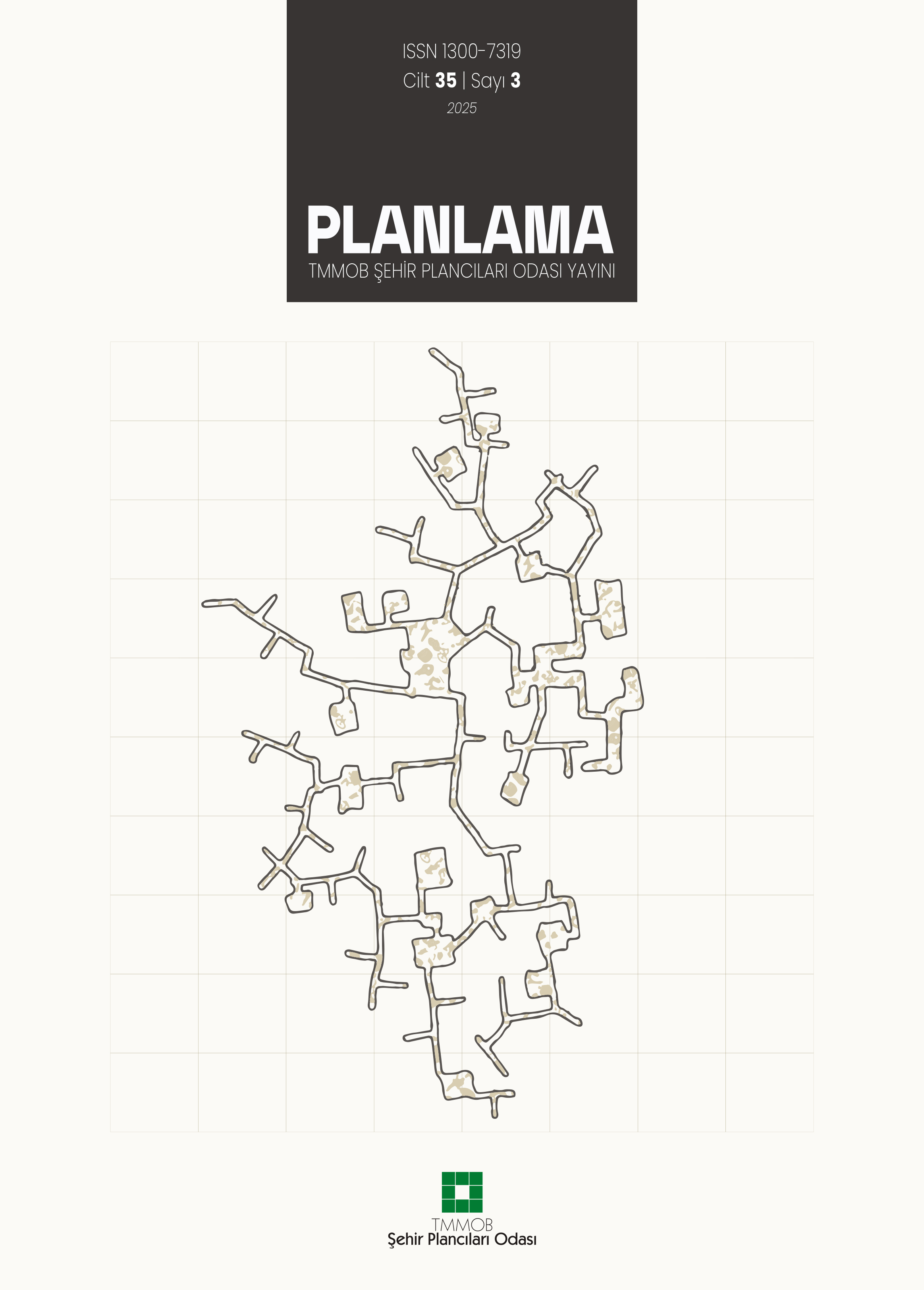İmar Barışı Düzenlemesinin Yerel Yönetimler Düzeyinde Etkilerinin Analizi
Zeynel Abidin Polatİstanbul Arel Üniversitesi, Gayrimenkul ve Varlık Değerleme Bölümü, İstanbulUrbanisation has emerged with the increase of migration from rural areas to cities. As a result of increasing urbanisation, the demand for housing has grown, and consequently, housing production has accelerated. In beginning of 2000s rapid population growth and the lack of housing inventory have forced those migrating from the city to meet their own needs for housing to a large extent by constructing illegal houses on Treasury or private land within the city limits. However, there are also housing projects that cannot be completed or inspected due to various reasons. Despite some precautionary measures, the number of illegal settlements and slums in our city grew rapidly. Local government responsibility for the management of urban areas has not been able to prevent illegal settlements for various reasons. Nowadays, as a result of the measures taken, the rate of squattering has gradually decreased. There are serious problems in meeting the urban infrastructure needs such as electricity, natural gas, water, sewage, transportation, and collecting taxes in these structures, which are considered illegal. Illegal construction and slum production (historical and territorial limitations), or measures (eg demolition decisions) not implemented sufficiently accelerated the illegal construction and squatters. The main reason for this situation is that local governments ignore some illegal structures in order to maintain their political future. From the past to the present, to solve these problems, various zoning amnesty laws have been issued. The most recent of these reconstruction forgiveness laws, also known as the Reconstruction Peace, is Law Number 7143 on the Restructuring of Certain Taxes and Other Receivables and Amendments to Certain Laws. According to Article 16 of this law, it aims to record unlicensed buildings constructed before December 31, 2017. The purpose of this study is to analyse the legal, social, and economic effects of the Reconstruction Peace regulation at the local government level, in consideration of the legal and administrative zoning amnesty process and related activities in Turkey. This study used a comparative analysis of the historical process of legislative and administrative structure of zoning amnesty laws in Turkey. In this context, the study aims to contribute to the search for alternative models of development to solve reconstruction problems in Turkey.
Anahtar Kelimeler: Kaçak yapılar, yerel yönetimler; imar affı; gecekondu; kentleşme.
Analysis of the Regulation of Zoning Reconciliation in Local Governments
Zeynel Abidin PolatDepartment of Geomatics Engineering, İzmir Katip Çelebi University Faculty of Engineering and Architecture, İzmir, TurkeyKırsal alandan kentsel alanlara göçlerin artmasıyla birlikte kentleşme olgusu ortaya çıkmıştır. Artan kentleşmenin neticesinde konut ihtiyacı da artmış ve sonuçta konut üretimi de hızlanmıştır. 2000li yılların başına kadar hızlı nüfus artışına rağmen aynı oranda artmayan konut stoku, kırdan kente göçen nüfusun kendi barınma ihtiyacını büyük ölçüde kent çeperinde hazine veya özel araziler üzerine yasadışı konutlar inşa ederek karşılamaya itmiştir. Bununla birlikte yasal olarak yapılmasına engel bulunmayan fakat çeşitli sebeplerden dolayı tamamlanamayan veya kontrolden geçemeyen konut projeleri de bulunmaktadır. Alınan tedbirlere rağmen kentlerimizdeki kaçak yapılaşma ve gecekondu üretimi olanca hızıyla devam etmiştir. Kentsel alanların yönetiminden sorumlu olan yerel yönetimler çeşitli sebeplerle kaçak yapılaşmayı engelleyememiştir. Günümüzde ise alınan tedbirler neticesinde gecekondulaşma oranı gittikçe azalmıştır. Hukuki olarak kaçak sayılan bu yapılarda oturanların imar, elektrik doğalgaz, su ve kanalizasyon, ulaşım gibi kentsel alt yapı ihtiyaçlarının giderilmesinde ve vergilerin toplanmasında ciddi sorunlar yaşanmaktadır. Kaçak yapılaşma ve gecekondu üretimine yönelik tedbirlerin (Tarihsel ve alansal sınırlamalar) alınmaması ya da tedbirlerin (Ör. Yıkım kararları) yeterince uygulanmaması kaçak yapılaşma ve gecekondulaşmayı hızlandırmıştır. Bu durumun oluşmasının temel sebebi yerel yönetimlerin siyasi geleceklerini devam ettirebilmek için bazı kaçak yapıları görmezden gelmesidir. Bu sorunları çözebilmek için geçmişten günümüze kadar çeşitli imar afları çıkartılmıştır. Bu aflardan en yenisi olan ve kamuoyunda İmar Barışı olarak da bilenen düzenleme 7143 sayılı Vergi ve Diğer Bazı Alacakların Yeniden Yapılanması ile Bazı Kanunlarda Değişiklik Yapılmasına İlişkin Kanun dur. Bu kanunun 16. Maddesi gereğince 31/12/2017 öncesinde yapılan ruhsatsız veya ruhsat ve eklerine aykırı yapıların kayıt altına alınması amaçlanmıştır. Bu çalışmanın amacı; Türkiyede imar affı sürecini ve eylemlerini yönlendiren yasal ve yönetimsel faaliyetleri ele alarak İmar Barışı düzenlemesinin yerel yönetimler düzeyinde hukuki, sosyal, ekonomik etkilerini analiz etmektir. Çalışmada, Türkiyede imar affı konusuna ilişkin yasal ve yönetimsel yapının tarihsel süreç içerisinde karşılaştırmalı analizini içeren bir yöntem izlenmiştir. Bu bağlamada çalışmanın Türkiyede imar sorunlarının çözümüne yönelik alternatif model arayışlarına katkıda bulunacağı düşünülmektedir.
Keywords: Illegal structures, local governments; zoning amnesty; slum; urbanisation.
Makale Dili: İngilizce














